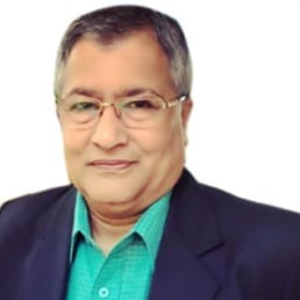Abstract:
In the contemporary world, the rapid depletion of fossil fuels has heightened the demand for alternative fuels. Research is being performed globally to identify biofuels as substitutes for conventional fossil fuels. The automotive industry has expanded significantly, necessitating improved performance of internal combustion engines. The demand for alternative fuels has escalated to meet the requirements of automobile compression ignition engines, including enhanced efficiency and reduced emissions.
The present work is aim to study the performance characteristics of variable Compression Ratio (VCR) Engine using 17.5:1, 18.5:1 and 19.5:1 as the compression ratios with diesel and Turmeric Leaf oil (TLO) and their blends as biofuels by applying various loads as 5kgs to 9kgs. Parameters such as percentage of TLO mixed with diesel, load applied and compression ratios are considered in performing the test on VCR engine to determine their brake thermal efficiency, volumetric efficiency, specific fuel consumptions and emissions such as CO, CO2, O2 and unburnt hydro carbons. From the results it is concluded that kinematic viscosity increases from 1.62cSt to 2.88cSt at 43.75% from TLO to B70 blend. When compared between pure diesel and B70 blend, B70 attained 14.79% lower value than pure diesel. Fire point of pure diesel is 70OC and B70 has 72OC which is 2.77% higher than pure diesel. And the similar values are attained to the flash point. These values indicate that the biofuel namely TLO blend B70 can be used as an alternative fuel in diesel engine, based on the encouraging results obtained for the above said engine performance parameters.
Keywords: Turmeric Leaf Oil (TLO), Blends, Centistoke (cSt), Variable Compression Ratio (VCR) Engine, Emissions.
Biography:
Dr. S Nawazish Mehdi is a distinguished Academician and researcher with over 40 years of teaching experience. He has held various key positions, including Principal Investigator for AICTE Research Projects, Ex-DEAN, Ex-HOD, and Ex-Director of R&D. Currently, he serves as a Ph.D. supervisor at Osmania University, JNTUH, Mewar University, and Singhania University. His expertise and influence extend beyond academia as a Member of the Board of Studies for JNTUH (Energy Studies), LIET (A), and several other institutions.
Dr. Mehdi’s contributions to research are significant, particularly in the field of IC engines and renewable energy & sustainable engineering and automobiles. He was awarded many funded research projects from Government, Ex: A ₹6 Lakhs research grant by AICTE under the R&D Scheme (2002-03) for his project on "Design Modifications in IC Engines to Use Hydrogen Fuel," with the completion report submitted in April 2006. He has also led various innovative projects funded by the A.P. State Council of Science & Technology, including Solar Electric Cars, Hybrid Vehicles, Regenerative Braking Systems, and Variable Compression Ratio (VCR) Engines.
A prolific researcher, Dr. Mehdi has guided more than 12 Ph.D. candidates and is currently mentoring 7 others. His academic contributions include over 90 publications in international and national journals and conferences. Additionally, he has authored four textbooks, had two patents granted, and one patent recently published. He has also served as a reviewer for numerous Scopus and Web of Science-indexed journals, further solidifying his position as a thought leader in engineering research.
Dr. Mehdi’s dedication and achievements have earned him several prestigious awards, including the Outstanding Researcher Award (2024) from IEOM Society International, the Engineering Seva Ratna Award from ECIF, a gold medal from the Madina Education Society, and the Life Achievement Award etc. His other accolades include the Man of the Year Award (2002), Best Faculty Counselor Award (2022), and recognition as one of the Leading Engineers of the World (2007) etc.
He has actively contributed to knowledge dissemination by attending over 50 conferences, workshops, seminars, training programs, and FDPs. As a guest lecturer, he has delivered impactful sessions at national and international events. Currently serving as Vice-President of QCT, Dr. Mehdi continues to inspire and shape the future of engineering education and research.


